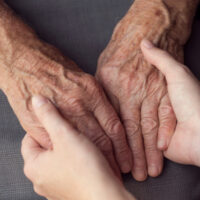Watch for These Signs of Social Isolation

Social isolation is a risk factor for many problems that the elderly face. When isolated, seniors are more vulnerable to scams, in particular romance scams. Seniors who are isolated also can have terrible health but fail to address it in an appropriate manner. As MedicareAdvantage notes, isolated seniors have a greater risk of dementia, malnutrition, blood pressure, and depression. Many isolated seniors are unable to take care of themselves but cannot get the help they need.
Below, we highlight some of the more significant signs of social isolation. If you notice any of these signs with a loved one—or if you notice them with yourself—reach out to an appropriate agency for support.
Lack of Interest in Socializing
Isolated individuals often never leave the house. Of course, someone in poor physical health might not leave the house, either, but they would still welcome company. When a senior shows no or little interest in meeting with people or participating in activities, then they might be isolated. You can offer to drive a loved one to events or activities; if they decline, then you might investigate further.
Weight Changes
Everyone’s weight fluctuates a little, but an isolated individual might have a dramatic weight change. If you notice a loved one has lost a lot of weight, then they could be isolated and unable to get enough to eat. Similarly, someone who has gained a large amount of weight might have the terrible eating habits and sedentary lifestyle that are hallmarks of social isolation.
Drug or Alcohol Use
To deal with isolation, many seniors develop a substance abuse addiction. If you notice a lot of beer bottles, tobacco, or drugs in the home, then a senior might have an addiction. Also pay close attention to prescription drugs, which can be just as addictive as illegal “street” drugs.
How to Treat Social Isolation
Treating isolation is easier said than done. Many websites recommend socializing or picking up a new hobby. But if a person could do that, they wouldn’t be isolated in the first place. Breaking through isolation is difficult.
Instead, try the following:
- Being physically active does wonders, not only for a person’s physical well-being but also for their mental health. Getting out to walk is also a good way to bump into people. In a sense, you have to force yourself to become social, and getting a walk in every day is an excellent way to do this.
- Adopt a pet. Pets can provide welcome company to an isolated senior. Many pets, like dogs, also need to be walked, which can give a senior a reason to go outside.
- Encourage a senior to see a doctor. A doctor can treat physical problems, like anxiety and weight gain. A doctor can also help intervene in substance abuse addiction.
Millhorn Elder Law Planning Group Has Served The Villages for Years
Our team is well prepared to help you or a loved one tackle a legal issue. Seniors have unique legal needs, so meet with a member of our estate planning team at Millhorn Elder Law Planning Group for individualized advice. You can call 800-743-9732to schedule a free consultation.
